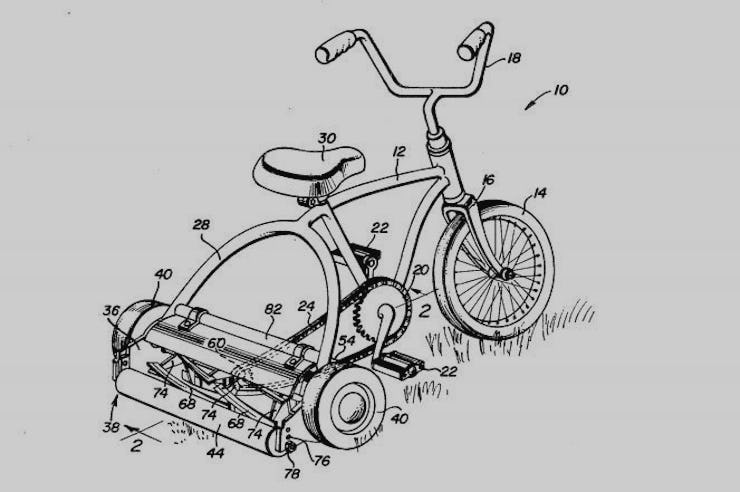The Best Lawnmower is the Patent for the Tricycle Lawnmower
How to trick kids into doing your chores.

Lawns replace diverse ecosystems with garbage monoculture, promote the use of pesticides, and misallocate natural resources like water. But if you went to the effort of planting that fescue/Kentucky bluegrass blend and also raising a child, you deserve a break. Back in 1982, inventor Deanna Porath figured out how to give you one. She tacked a bunch of spinning blades to the rear end of a tricycle, creating the questionably kid-friendly pedal-operated mower.
Sure, human-powered mowers aren’t as efficient as their mechanical counterparts — just think of this less as backbreaking yardwork and more as breaking a sweat (but not in a child labor sort of way). Feel the burn!
The pedal operated mower is a quiet and efficient structure providing exercise regardless of age, and since the pedal operated mower is primarily an exercise man-powered machine, any uncut grass due to the spacing between the cutter blades proximate the rear sprocket is easily handled by running the pedal operated mower again over that portion of any uncut grass passed by the space between the cutter blades.
Age was a big motivator in the creation of this invention. (The word “young” is repeated several time in the patent description. Also this is a tricycle.) As Porath understands, the puny arms of children are too weak to pull-start the engine of a traditional lawn mower. Not to worry:
The pedal operated mower is a man-powered machine in which the operator will not need to have to pull his arm abruptly in order to crank an engine for a mower, where an operator is quite young or an elderly person and thus conserving natural resources and energy, but yet providing a means to obtain exercise while grooming the yard during the process of cutting the grass.
Not only will the homeowners association quit busting your balls, but your child or elderly ward is on a one-way trike trip to cardio town. Everyone wins, except for the local wildlife, set upon unaware by silently spinning blades, that is quietly eviscerated.